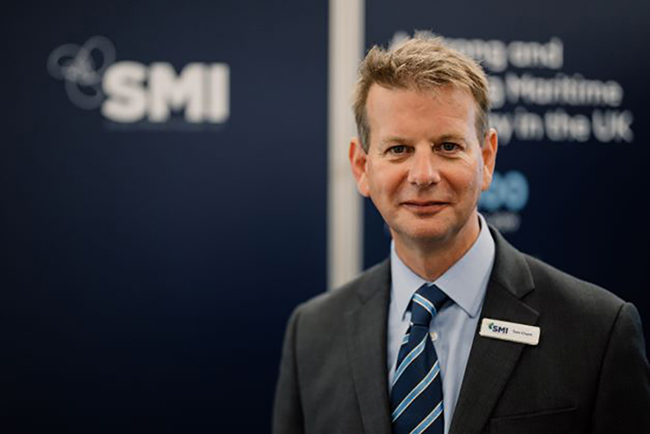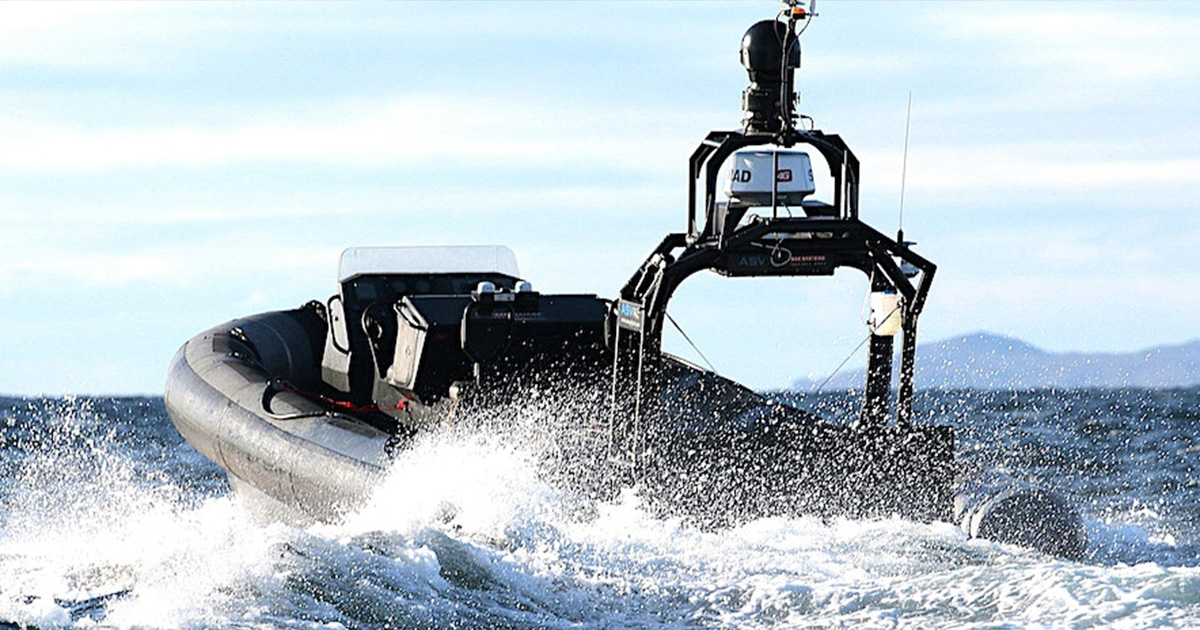The UK’s voice of maritime engineering and marine science, the Society of Maritime Industries (SMI), is staging an event aiming to galvanize the UK’s world leading marine robotics sector during London International Shipping Week.
The event on September 14 titled ‘Creating a Leading Edge—Accelerating Autonomy to Unlock UK Opportunity’ will bring together small businesses driving the sector with the Maritime & Coastguard Agency.
The event will present the outcomes of two workshops SMI has held with SMEs and members outlining how designers, builders and operators of marine robotics can work safely together.
SMI CEO Tom Chant said for the UK to maintain its position as a prime mover in marine autonomous system (MAS) it needs a clear pathway for growth and streamlining regulation.
 Tom Chant, CEO Society of Maritime Industries. (Image credit: Society of Maritime Industries)
Tom Chant, CEO Society of Maritime Industries. (Image credit: Society of Maritime Industries)
“Britain risks losing our competitive edge if our entrepreneurs cannot innovate at speed,” he said. “Red tape is an issue. But on a positive note, both Government and industry are coming together to work out solutions in what is a rapidly advancing sector. The key is for regulation to keep pace with innovation and new technology without compromising safety.”
Peter Collinson, SMI member and founder of MAS and decarbonization consultancy Dendrityca says the UK MAS sector is losing the momentum of the late 2010s. He points to a combination of legislation and a risk averse industry hitting the break on innovation.
“Legislation around MAS is problematic,” he said. “It’s too slow and therefore for end users like engineering contractors, assessing seabed infrastructure, it presents regulatory risk. Why would you invest in new MAS technology if it may not pass approvals on a tight deadline? You cannot afford to make a mistake and safety always comes first. So understandably contractors will favor technology that is proven, such as remotely operated vehicles (ROV) connected to a manned ship. Contractors have invested heavily in this type of equipment and there is a vested interest in continuing using it. Red tape around MAS gives an excuse not to evolve.”
Collinson pointed to the vastly reduced carbon emissions, fuel use and operating costs of MAS equipment.
“Marine robotics can cut emissions by as much as 99pc,” he said. “If you consider some MAS equipment uses just 60 liters of diesel a day and can replace a traditional crewed vessel with ROV burning through 12-15 tonnes of fuel per day. This is the MAS opportunity we want to seize.”
Register for SMI autonomy event:
Creating a Leading Edge – Accelerating Autonomy to Unlock UK Opportunity
Thursday September 14. Time: 0930-1230
Venue: THV Galatea outboard of HMS Belfast, Queens Walk Belfast
MAS BACKGROUND
Marine Autonomous Systems (MAS) have been around since the 1950s. However, as technology has advanced, and costs fallen, MAS is taking giant steps forward. MAS is now being used more widely in underwater surveillance, marine science, oil pipeline and subsea infrastructure surveys as well as defence. MAS equipment ranging from a variety of autonomous survey vessels (ASVs) and autonomous underwater vessels (AUVs) can now provide vast amounts of data replacing the need for divers and remotely operated vehicles (ROVs) with large crews and vessels. Battery powered, preprogrammed MAS can launch from the sea, shore or sky and remain independently active for months at a time.
AUVs are further quicker to launch and provide faster response times than ROVs which have to be tethered to and controlled by a ship. AUVs and ASVs can also be controlled by satellite and are more agile with lower operating costs. This enables more of them to be deployed meaning more territory is surveyed resulting in more comprehensive data enabling better decision making.


